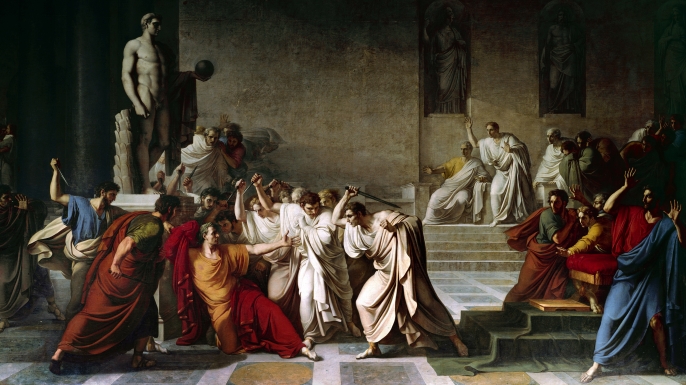Monday, October 12, 2015
The Ides of March
After defeating Pompey the Great and his legion in the Battle of Pharsalus, Julius Caesar was now considered the most powerful man in Rome. With that title, he also assumed the role of dictator of Rome indefinitely. Many of the Roman senators were afraid of what ambitions Caesar held for the future.
With the belief that Caesar was too powerful, a group of senators, lead by Brutus and Cassius, dubbed themselves the "Liberators". The Liberators' goal in mind was to assassinate Caesar to free the Romans from being enslaved to Julius. They devised a plan to murder him on a date equal to the 15th of March, otherwise known as the ides of March, where he would be alone with all the other senators plotting to kill him.
A soothsayer, someone who claims to be able to see into the future, warning Caesar to beware of dangers on the Ides of March. However, Julius failed to listen to it. On the day of the reckoning, Julius experienced a number of bad omens, but was still persuaded to join the senate by Brutus. Marc Antony caught a hold of the assassination plot, but was delayed by a conspirator as he tried to warn Caesar.
As soon as Caesar sat down with the senators, he was greeted with an inquiry to sign a petition, but Caesar would rebuff the request. Following his rejection, the conspirators withdrew their daggers from their togas and would proceed to stab Julius 23 times. He was left on at the foot of Pompey's statue to die. This lead to Rome being in a power vacuum and eventually Octavian was named the heir to Julius Casear.
Source
Subscribe to:
Post Comments (Atom)


No comments:
Post a Comment
Note: Only a member of this blog may post a comment.